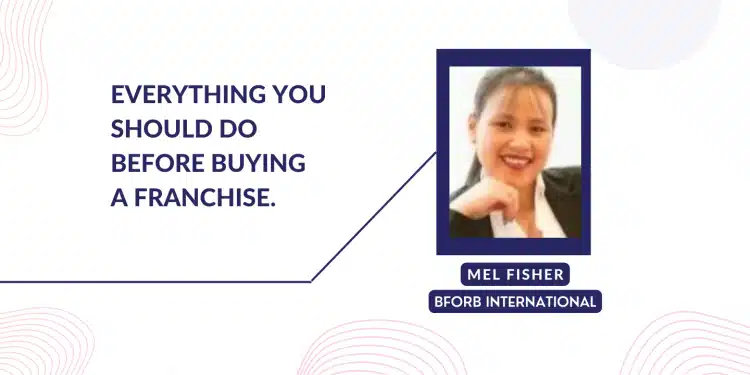Your checklist – everything you should do before buying a franchise
We started Business for Breakfast (BforB) in 2001, with the first breakfast meeting held in Manchester at the Worsley Park Marriott Hotel & Country Club. Since then, the business network company grew rapidly, with new referral marketing meetings opening across the region. BforB soon accepted its first franchisee with a proven business model, rapidly adding a further ten franchisees whilst expanding across the UK and internationally.
Having been on the front line whilst developing BforB as a successful franchise business, I’ve been able to help a wide range of potential franchisees understand what they are looking to get out of a franchise. During this time, I have refined my understanding of the vital considerations that a franchisee needs to decide before buying a franchise.
Firstly, any successful franchise should start with an in-depth and systematic period of research and preparation. This preparation will allow anyone interested in starting a franchise business to fully understand the business opportunity and investment (of both time and money) required. If you follow these seven steps during your preparation, then you will be well on your way to identifying the right franchise business for you.
Seven steps before buying a franchise
1. What are your skills?
There are over a thousand franchise concepts in the UK alone. You need to find one that closely fits your skills. Should you decide to venture into a new and more lucrative franchise opportunity away from your core skills, look out for the product or service that you would enjoy doing. You will spend much of your time at work, especially in your first couple of years in business. I always believe that your chance of business success is much higher when you enjoy what you do.
2. What is your financial expectation from the business?
What motivates you? Is it money, or are you looking for a lifestyle business to work around other commitments? Franchise concepts offer a wide range of potential or actual earning. Identify what you want out of your franchise and set your realistic financial expectations, and then assess whether the franchise opportunities you are considering match your expectations.
3. Can you build, and work as, part of a team?
Are you a team player or work well under pressure on your own? Running your own business will inevitably put you in situations where you need to work independently and with other people. What is the structure of existing franchise businesses? Are you going to be managing a team or working independently? What interaction is there with other franchisees? Are all questions to ask the potential franchisor.
4. Where will you be based / what is your territory?
The success of a franchise business can be dependent on your local knowledge of the industry. There are territories in the UK that could be harder to develop than others. It’s therefore vital to consider where your franchise will be based as part of your research and planning.
5. Should you get input and support from your family?
Some say ‘never tell anybody what you are going to do, just do it; some say ‘tell your family and friends about what you are planning to do and listen to their feedback’. Both are true in my experience; however, it is always important to discuss it in detail with your partner. When you are sharing financial responsibilities with another person, you must secure the necessary support.
6. Do you understand the processes?
Running a franchised business can be compared to ‘implementing a series of tried and tested processes’. Is this you? Some franchisors welcome innovators and radical thinking and usually adapt quickly. However, most successful franchised brands have gained their ‘Unique Selling Propositions’ due to the processes and systems they have put in place to deliver their product or service. Entrepreneurs are naturally creative and innovative; however, sticking to the systems has its own merit – after all, a franchise is a process of replicating an already successful business model.
7. What time can you put to the business?
Having a good idea of what time you prefer to work can be helpful. Different franchisees will have different requirements in terms of when the work needs to be undertaken. Franchise concepts can be tailored from full-time to part-time or a work-around-your-family level of commitment.
On average, it takes about three months to find a franchise from enquiry to application. This can be affected by the way you are going to fund your new business. Allow additional time for securing bank funding. Launch processes can also be affected by site availability for shops and delivery schedules for van based franchises. Some business can be up and running in eight weeks and some in eight months. Factor this in your planning time.
Good Luck in your business venture, and we hope you see you networking with BforB soon.



Get involved!
Comments